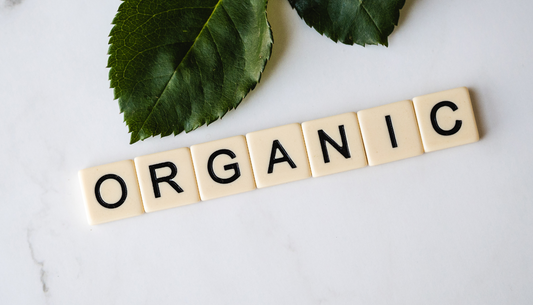
Which Tea Is Best for Sleep and Relaxation – Green, White, or Puerh?
Finding the best tea for sleep is key. Different teas, like green, white, and puerh, come from the Camellia sinensis plant. They vary in processing, caffeine, and sleep benefits. These differences affect how well they help you sleep.

This article will show how these teas can help you sleep better. You'll learn why adding them to your bedtime routine is good. By the end, you'll know which tea is best for you, helping you choose the perfect tea for sleep.
Key Takeaways
- Green tea, white tea, and puerh tea come from the same plant but differ in their processing methods and caffeine content.
- Green tea is known for its calming effects and antioxidant properties.
- White tea offers gentle relaxation due to its minimal processing.
- Puerh tea is fermented, providing stress-relieving benefits that can improve sleep quality.
- Integrating tea into your nighttime routine can enhance relaxation and promote better sleep.
Introduction to Tea and Sleep
Tea is known for its calming effects, making it a favorite for those looking for a natural sleep aid. Knowing the differences between tea types, how they're made, and their compounds helps explain why they're good for sleep.

Why Tea is Considered a Natural Sleep Aid
Some teas have little caffeine and lots of calming stuff like theanine and antioxidants. This makes them great for sleep. Herbal bedtime teas, like chamomile and valerian root, are caffeine-free and very soothing. Drinking tea can also calm you down, helping you sleep better.
How tea is made affects its sleep benefits. Green tea, with its antioxidants and a bit of caffeine, relaxes you without too much energy. Herbal teas, like rooibos and peppermint, have no caffeine and are perfect for those who want to sleep well. These teas have calming compounds that are great for your bedtime routine.
The Calming Effects of Green Tea Before Bed
Green tea is special because of its health benefits and its perfect for drinking at night. It has low caffeine and lots of calming stuff in it.

Benefits of Green Tea for Relaxation
Green tea is full of antioxidants, like EGCG, which fight stress and make you feel good. It has very little caffeine, making it great for a good night's sleep.
Green tea also has lots of L-theanine, thanks to how it's made. L-theanine helps you relax without feeling sleepy. It keeps you alert but ready for sleep.
Drinking green tea before bed can make your evening routine better. It tastes good and helps you sleep well. Many people say it makes falling asleep easier and more fun.
White Tea's Relaxing Properties and Calming Effects
White tea is known for its minimal processing and delicate flavor. It offers many benefits for relaxation and a good night's sleep. As a naturally caffeine-free tea, white tea is perfect for those who want to unwind before bed.
The calming effects of white tea come from its antioxidants and amino acids. Drinking white tea before bed can help you feel calm and relaxed. This is key for easy sleep.
Using white tea for sleep can improve your sleep quality. It's a great choice for those who don't want the jitters from caffeinated drinks. White tea's natural ingredients support relaxation, making it enjoyable and effective.
White tea is perfect for those who are sensitive to caffeine. It's a caffeine-free tea that helps you relax and sleep well. This makes it a great choice for anyone wanting to improve their sleep naturally.
| Characteristic | White Tea |
|---|---|
| Processing | Minimal, preserving natural compounds |
| Caffeine Content | Low to none, ideal for sleep |
| Flavor Profile | Delicate and subtle |
| Calming Effects | High, promotes relaxation |
| Best Time to Consume | Evening, before bed |
Puerh Tea Benefits for Sleep and Relaxation
Puerh tea is known for its aged and fermented qualities. It has a unique flavor and calming properties. These make it a great choice for a sleep-promoting tea. Many people find it helps with insomnia and improves sleep quality.
Health Benefits of Puerh Tea
Puerh tea has many health benefits that help with sleep. It aids digestion, which can reduce nighttime discomfort. It also lowers cholesterol levels, supporting heart health and natural sleep aids.
The regular use of puerh tea can:
- Enhance digestion
- Lower cholesterol levels
- Improve cardiovascular health
These benefits are key to a bedtime routine with puerh tea. They offer both* insomnia relief* and tranquility. A calm digestive system and managed cholesterol levels help ensure a good night's sleep.
Adding puerh tea to your life can lead to deeper, more restful sleep. Its holistic benefits improve your overall well-being.
Does Tea Help You Sleep? Bedtime Tea
Many people ask, does tea help you sleep? The answer is yes, thanks to the natural compounds in tea. Bedtime tea can make your evening calm and relaxing. It's a great way to end your day.
There are many teas that help you sleep better. Green tea, for example, has L-theanine. It relaxes you without making you sleepy. White tea is low in caffeine but full of antioxidants, which calm your mind and body.
Puerh tea is another good choice for bedtime. It tastes rich and earthy. It helps with digestion and can reduce anxiety, making it easier to sleep.
| Type of Tea | Key Compounds | Benefits |
|---|---|---|
| Green Tea | L-theanine | Promotes relaxation without drowsiness |
| White Tea | Low caffeine, high antioxidants | Soothes mind and body |
| Puerh Tea | Fermented compounds | Aids digestion, alleviates anxiety |
Knowing how these teas help you sleep can guide your choice. Adding sleep-promoting tea to your evening routine improves your sleep and overall health.
Making Tea a Part of Your Nighttime Routine
Creating a tea ritual can change how you relax at night. It's not just about making tea. It's also about making a peaceful space.
Creating a Relaxing Tea Ritual
Choose your favorite tea, like green, white, or Puerh. Set a time each night for this calming ritual. Dim the lights and play soft music.
As you prepare your tea, take deep breaths. This tells your body and mind it's time to relax.
Brewing Tips for Optimal Relaxation
For the best relaxation, follow some brewing tips. Use the right water temperature for your tea. Green tea likes cooler water, while white tea prefers warmer.
Steep your tea for the right time to avoid bitterness. Green tea is 2-3 minutes, and white tea is 4-5 minutes. Enjoy your tea in a calm place, feeling the peace it brings.
Conclusion
Choosing the right tea for sleep can really help you relax and sleep better. Teas like green, white, and Puerh offer calming effects. Each one has its own benefits, from antioxidants in green tea to gentle calm in white tea, and digestion help in Puerh tea.
It's important to try different teas to find what works best for you. If you have insomnia or want better sleep, the right herbal tea might help. Drinking natural sleep aid tea before bed can improve your sleep quality.
Adding a relaxing tea ritual to your bedtime routine does more than just prepare you for sleep. It brings calm and relaxation, improving your overall well-being. By making these teas a nightly habit, you can enjoy better sleep and a healthier life.
FAQ
Why is tea considered a natural sleep aid?
Tea is a natural sleep aid because it has little caffeine and calming compounds like L-theanine. These help you relax without the jitters from too much caffeine.
What are the benefits of drinking green tea before bed?
Green tea is good for bedtime because it has low caffeine and lots of antioxidants. Its minimal processing keeps calming compounds that help you relax and get ready for sleep.
How does white tea promote relaxation and a peaceful night's sleep?
White tea is lightly processed and has low caffeine. It has a soothing effect that makes it perfect for a calm night's sleep.
What are the unique benefits of puerh tea for sleep?
Puerh tea is aged and fermented, which aids digestion and lowers cholesterol. Its earthy flavor and calming effects make it great for bedtime routines and sleep quality.
How can specific teas aid sleep through natural compounds?
Certain teas have compounds like L-theanine and antioxidants that help you relax and reduce stress. Green, white, and puerh teas are good for sleep. Herbal teas like chamomile and peppermint also help you sleep.
What are some practical tips for incorporating tea into a nighttime routine?
Creating a tea ritual can be calming and beneficial. Use the right water temperature and steeping time. For example, green tea needs 175°F (80°C) for 2-3 minutes, while white tea is best at 160°F (70°C) for 4-5 minutes.
How does herbal tea for insomnia differ from other sleep-inducing teas?
Herbal teas like chamomile, valerian root, and lavender are caffeine-free and have sleep-supporting compounds. They often have a stronger calming effect than other teas, making them great for sleep issues.
